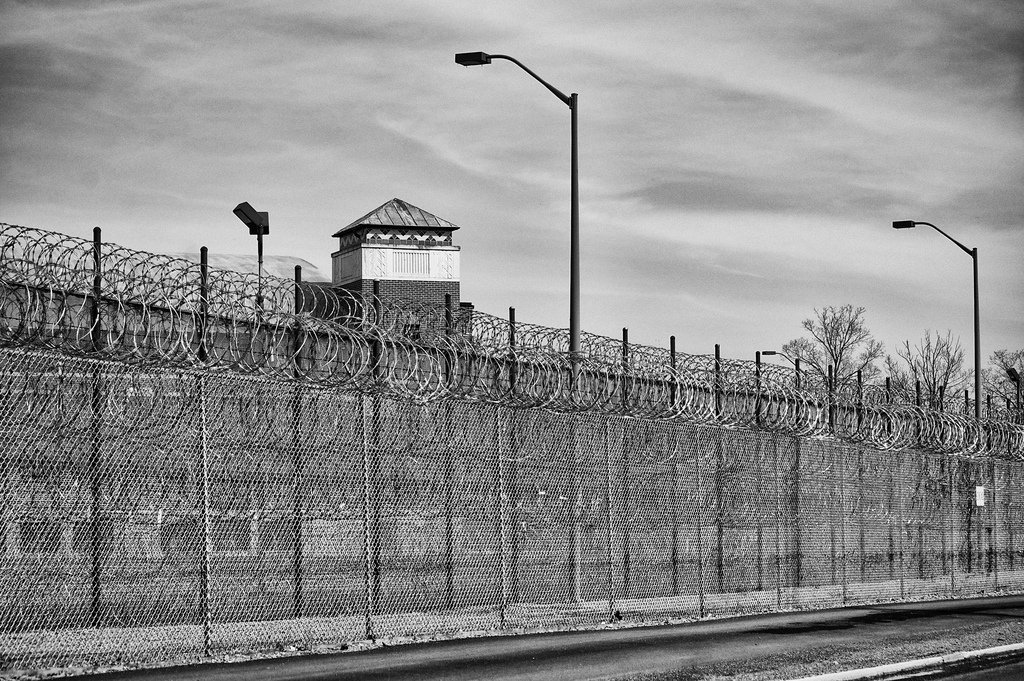“From the 1870s until the 1970s, it was widely assumed in the United States that mentally ill individuals did not belong in prisons and jails but rather in mental hospitals, where they could receive asylum and treatment” [1]. In the 1970s, a fundamental shift in American mental health care occurred—deinstitutionalization [2]. The idea was to shift mental healthcare from large psychiatric hospitals to more community-based health centers. This did not happen. Psychiatric hospitals were shut down, and the funding for the community health centers never manifested. So what did happen?
“There are now more than three times more seriously mentally ill persons in jails and prisons than in hospitals; the worst states, such as Arizona and Nevada, had almost 10 times more” [3]. We moved our country’s mentally ill from our hospitals to our prison systems. In 2012, a study estimated that 2.1 million mentally ill individuals were arrested in America in 2007 [4]. This is especially relevant to those of us here in Maricopa County as our county is consistently among the highest in terms of incarcerations nationwide [5].
Due to Estelle v. Gamble, a 1976 Supreme Court ruling, inmates must be provided with healthcare while incarcerated; otherwise, it constitutes cruel and unusual punishment, a violation of the 8th amendment [6]. Instead of funding community health centers to treat the mentally ill, we now incarcerate them en masse and offer them treatment in a hostile environment. As evidenced by recidivism rates greater than fifty percent among the mentally ill, this does not appear to be working [7].
Nationwide, studies have shown that the mentally ill remain incarcerated longer than the non-mentally ill. They tend to cause more problems—particularly if they’re untreated—for corrections officers and other inmates alike. They tend to become much sicker in jail as well. They are more often confined to solitary confinement, which can also exacerbate mental illness. Furthermore, they are disproportionately the victims of jailhouse abuse, beatings, and rape [1].
The result? Astronomical costs to taxpayers footing the bill for incarcerating those with mental illnesses. “In Texas prisons in 2003, mentally ill prisoners cost $30,000 to $50,000 per year, compared to $22,000 for other prisoners. In Washington State prisons in 2009, the most seriously mentally ill prisoners cost $101,653 each, compared to approximately $30,000 per year for other prisoners” [1].
Here in Arizona, as of September 2015, the state correctional system population was 42,736 [8]. A conservative estimate puts the percentage of the incarcerated who are mentally ill at 20% while others place the number far higher at 56% [9-10]. This means that anywhere from 9000 to more than 22,000 mentally ill individuals were in state prisons and jail in September. At an average cost of $24,805 per inmate (mentally-ill and non-mentally ill), this amounts to anywhere from $200 million to more than $500 million a year [11]. This is assuming, of course, that each of the mentally ill inmates costs around the state average, an assumption that is unlikely due to reasons stated above.
To put that in perspective, the state of Arizona spent $7208 per student in 2013 [12]. Much is made in America today about fiscal responsibility and perpetual budget crises at the state and federal levels. We cannot fund enough teachers for our schools without outrageous class sizes. We cannot fund adequate road and infrastructure repair in many areas. Yet, we choose to incarcerate some of the most vulnerable in our society at extravagant costs. Studies are needed to more closely and analytically examine what the cost of delivering our mental healthcare via incarceration is relative to what care would cost in the community setting. We may discover that there are economic reasons, in addition to the social justice and ethical considerations, for reforming how we approach and care for our mentally ill.
1. Torrey, E., M. Zdanowicz, et al. “The Treatment of Persons with Mental Illness in Prisons and Jails: A State Survey.” Treatment Advocacy Center and National Sheriffs’ Association. 8 April 2014.
2. http://www.pbs.org/wgbh/pages/frontline/shows/asylums/special/excerpt.html
3. E. Fuller Torrey, Aaron D. Kennard, et al. “More Mentally Ill Persons Are in Jails and Prisons than Hospitals: A Survey of the States.” Treatment Advocacy Center. 2010.
4. Hawthorne, W.B., D.P. Folsom, et al. “Incarceration among adults who are in the public health system: rates, risk factors, and short-term outcomes.” Psychiatric Services. 2012: 63(1). http://dx.doi.org/10.1176/appi.ps.201000505
5. http://www.forbes.com/2009/07/10/jails-houston-recession-business-beltway-jails_slide_6.html
6. Rold W.J. “Legal considerations in the delivery of health care services in prisons and jails.” In: Puisis M. Clinical Practice in Correctional Medicine. 2nd ed. Philadelphia, PA: Mosby-Elsevier; 2006:520-528.
7. Wilson, A.B.W., J. Draineb, et al. “Examining the impact of mental illness and substance use on recidivism in a county jail.” International Journal of Law and Psychiatry. July-August 2011: 34(4), 264-268.
8. https://corrections.az.gov/sites/default/files/REPORTS/CAG/2015/cagsept15.pdf
9. http://www.bjs.gov/index.cfm?ty=pbdetail&iid=789
10. http://www.urban.org/research/publication/processing-and-treatment-mentally-ill-persons-criminal-justice-system/view/full_report
11. http://www.vera.org/sites/default/files/resources/downloads/the-price-of-prisons-40-fact-sheets-updated-072012.pdf
12. http://www.census.gov/content/dam/Census/library/publications/2015/econ/g13-aspef.pdf?emlgd&utm%E2%80%94mediumemail&utm%E2%80%94sourcegovdelivery
Laeth George is a first-year medical student at The University of Arizona College of Medicine – Phoenix. He graduated from The University of Arizona in 2015 with a Bachelor of Science in Physiology. He is passionate about spreading scientific knowledge and ideas to others. More specifically, Laeth is interested in advances in understanding disease pathology and innovations in medical therapies. If you have comments, questions, or recommendations, please feel free to contact him at laethgeorge[at]email.arizona.edu.

